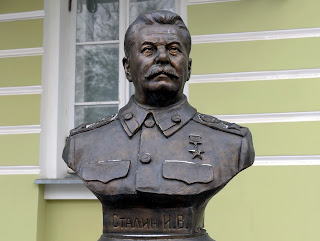God put you on earth for a purpose. Think about that. You are not just a random human. God created you for a specific purpose. Paul says this in Ephesians 2:11: “For we are God’s handiwork, created in Christ Jesus to do good works, which God prepared in advance for us to do.” You are God’s handiwork. You were created in Christ Jesus to do good works and for an assignment that he prepared in advance for you to do. That is what Paul says.
Too often, however, we don’t live life on mission but simply allow those around us to define our mission for us. Here is something to consider. Everyone has a plan for your life. Your parents, your kids, your employer, your friends, and sometimes even your church. We have more opportunities to fill our calendars than we have time to do it. Our lives are full and busy, and what often gets lost in the process is time for those things God has called us to. We are too busy and distracted to live out our purpose.
How do we know what that purpose is? How do we know what those good works are that He prepared in advance for us to do? The answer to that question usually revolves around how He gifted us and how He has motivated us. For instance, one of my close friends is in His sixties. He is a successful investment advisor in Phoenix. For his whole life, he has mentored others. He mentors kids in the hood who don’t know their potential. He mentors men at church who are looking to grow. He just loves to mentor and develop others. It is what he does. It is what he is good at.
He also mentors non-profit boards. He sits on a number of boards and helps those ministries do what they do better. Wherever he finds himself, he is in a role of developing others. These are the good works God prepared for him, and this is what God gifted him to do. I have known him for at least two decades, and his commitments have not changed.
What makes Roger unique, however, is that he understands the kind of ministry God has for him, and he intentionally makes time to do what God gifted him to do. This means that there are other things that he needs to say no to. In fact, no is one of the most powerful words in any language, and rather than being a negative word, it can be very positive. When I graciously say no, I am doing so because what has been requested, good as it is, would take me away from something more important. No, it leaves me an opportunity for yes. Otherwise, we are too distracted with all kinds of good things and miss the most important things.
In the Gospels, even Jesus said no to his disciples. After a particularly fruitful couple of days when there was a great deal of healing and teaching, the disciples found him one morning and said, “Hey, this revival thing is working well. We need to keep it going.” OK, that is the Addington rendition of the text. But it’s pretty much what they said. Jesus, though knowing His Father’s priorities for His life and ministry, said no. I need to preach to others who have not yet heard. He said no in order to say yes.
Remember that the most precious commodity any of us have is not money. It is time. Money can come and go. You can lose it and get it back. Time just goes! You can never get it back. Every time we agree to do something, we are writing a check. A time check. And if we are not careful, we can write too many time checks and, in the process, lose the ability to do those things that God created us for. We allow good things to get in the way of the best things.
I know that God has called me to write. It is why I am writing these devotionals and actually write five a week even when we are not in Lent. That means that I must leave time for the writing. I am up early this morning doing that very thing.
It would be a real bummer to get to heaven and realize that God had gifted and equipped us with some really powerful stuff but that we missed it because we were too distracted and just didn’t pay attention. The truth is that each of us has a very powerful role to play in His divine drama in this world. We have the opportunity to be players on His divine stage for a period of years called life, joining Him in what He is up to in our world. That is an amazing thing. In His kingdom, there are no little people, and there are no little assignments.
Walt pulls people together to get stuff done. Steve preaches in a way that captivates our hearts. Eric has the ideas and vision to chart a course. David organizes the church board. Saray makes sure the details are taken care of. Charmon captures the hearts of kids - and the rest of us because we are still kids. Bob uses his voice in these devotionals to communicate well. Loren lifts her voice to lead us in worship. Carrington creates worship experiences. Steve creates opportunities to mentor at-risk kids. Think of the beauty of that multiplied by many others, each of us, as we play our role for Jesus. It is an amazing symphony of ministry that we do on behalf of Jesus as we join him in His divine plan for this city at this time. That is powerful, beautiful, and effective.
Think through your life today and ask yourself the question, “Where is my place in His divine drama?” Then, consider whether you are giving it the time you should be. After all, you are unique, and you were created for a unique purpose. Don’t allow distractions to keep you from the mission He created you for.
Father. Thank you for how you have gifted me and for the passions you have planted in my heart. Would you keep me from distractions so I can best fulfill the work you put me on this earth for? Amen.
The Question for Today: Am I living out my God-given purpose, or am I too distracted?









